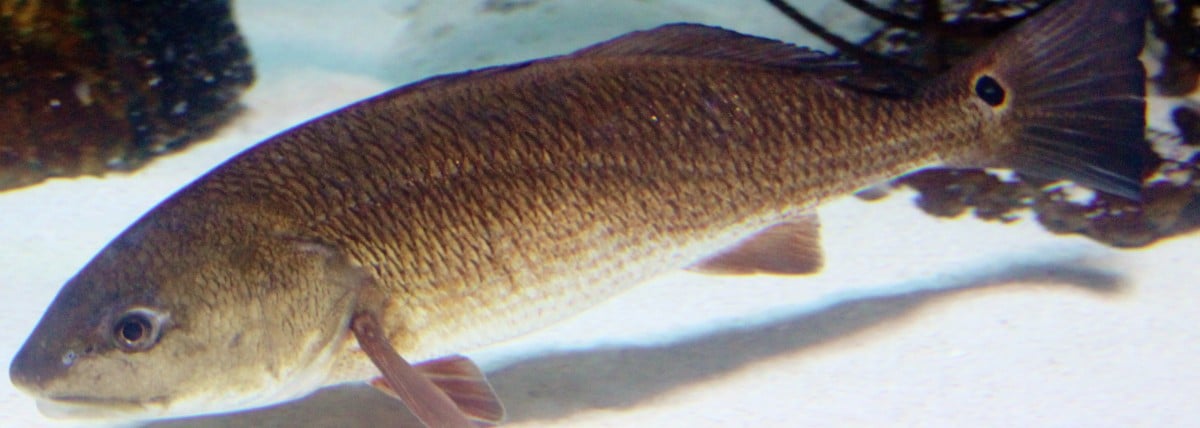GFI’s Sustainable Seafood Initiative announces new strategic partnership and grantees

If you follow the cultivated meat industry, you probably know that 2019 was a big year for cultivated seafood, and 2020 is shaping up to be even bigger. Here at GFI, we have a couple of seafood-related announcements of our own!
The challenge at hand and why we need cultivated seafood
The health of our oceans is at risk, and if we continue on our present course we are looking at both massive biodiversity loss and challenges to global food security. In 2015, 33% of fish stocks were classified as overfished. A further 60% were fished at the maximum sustainable level. These numbers are worrying, to say the least, given that global seafood demand is projected to grow by 30% over 2010 levels by 2030. Only 7% of fisheries around the world are estimated to be underfished, thereby making it unlikely that we can meet this additional projected demand through wild-caught seafood.
Even if we were able to increase supply to meet this demand, both wild-caught and farmed seafood pose additional challenges. Bottom trawling and other destructive fishing methods threaten our marine ecosystems through bycatch and habitat destruction. In areas where aquaculture is not well regulated, there have been significant challenges, including released waste products, irresponsible antibiotic use, contamination, animal welfare concerns, human rights violations, and scalability hurdles. Although there are producers making strides when it comes to sustainability, these players represent only a portion of the seafood supplied around the world. Better alternatives are desperately needed to supplement current production methods and to replace the more harmful ones.
In response to the threats posed by conventional meat production, scientists and companies are now working to cultivate meat directly from cells, rather than from whole animals. Of the dozens of public-facing companies pursuing cultivated meat, only five—Finless Foods, Shiok Meats, Wild Type, Avant Meats, and BlueNalu—focus solely on seafood. Seafood makes up about one third of our animal protein consumption by weight and we eat many more aquatic than terrestrial species. Plus, in contrast to farmed terrestrial species, basic research into seafood species’ biology is severely lacking. Most fish cell and developmental biology studies focus on zebrafish or medaka. These species are easy to grow in the lab, but are not so popular as food! Given that, there is a lot of room for both more research and more commercial players in cultivated seafood.
Enter GFI
In response to these challenges, GFI created the Sustainable Seafood Initiative (SSI) in early 2019. SSI’s goal is to ensure that sustainable and ethical seafood makes it to consumers’ plates as soon as possible.
One of the SSI’s first projects will be the creation of a cell line repository including lines from seafood-relevant species. Lack of access to cell lines is a significant barrier to research progress. Researchers wanting to study everything from media composition to scaffolding to bioreactor design have to first either find a source of cells or create their own line. This takes time and resources. By developing easily accessible cell lines for the research community, we will allow researchers to use their limited time and resources solving more challenging and interesting downstream problems.
Strategic partnerships and grants create new opportunities for the future of seafood
GFI is excited to announce that we have recently signed a Memorandum of Understanding with Kerafast, a reagents company that provides difficult-to-access bioresearch materials to the global scientific community. This agreement establishes a cell line repository managed by Kerafast, which will include characterization and quality control data for each line and a straightforward ordering system. Researchers wanting to order a line won’t have to wrangle with their institution’s lawyers to sign an MTA (Materials Transfer Agreement; if you don’t know what this is, consider yourself lucky!).
“We are excited to begin our partnership with the Good Food Institute,” said Amelia Gibson, Ph.D., MBA, Senior Director of Product Licensing at Kerafast. “The Kerafast mission is to advance scientific research by facilitating access to unique lab-made research tools, and we’re eager to support the scientists who are developing sustainable seafood by making related cell lines more readily available worldwide.”
“This new capability shifts the technological arms race to a new stage very similar to the early PC era, now that cell-based meat ingredients will soon be available as ingredients, we should see a proliferation of small faster moving companies very similar to the personal computer brand boom (and eventual consolidation) which led to companies like Apple and HP,” said Ryan Bethencourt, co-founder of SOSV (IndieBio), Wild Earth Pets, and Babel Ventures.
We encourage all researchers who would like to share lines from both seafood and terrestrial meat species to contribute them to the Kerafast repository. We also plan to link the cell line repository with other SSI resources, including a forthcoming “seafood atlas” containing detailed structural and cellular-level characterization of conventional seafood products.
In addition to this strategic partnership, we just awarded a grant to Mote Marine Laboratory to create cell lines from redfish (Sciaenops ocellatus) and whiteleg shrimp (Litopenaeus vannamei) embryos. Current model species have limited direct relevance to seafood. Because there is also a solid foundation of research into redfish biology, including cell culture studies, Mote chose this species to establish it as a “model food species.” Shrimp is an obvious and incredibly impactful choice, given that it’s a very popular food with some pretty dismal environmental impacts.
“Mote’s team is excited for a new research direction that will leverage our decades-long expertise in aquaculture of marine species and development of cell culture techniques. We welcome this unique opportunity provided by this funding to expand the current knowledge base for cell culture from marine species, with potential for long-term human and environmental benefits,” said Dr. Cathy Walsh, Associate Vice President for Research at Mote and lead of the cell culture component of the project.
“The opportunity for GFI and Mote Marine Laboratory to partner on developing critical cell-lines, media formulations and protocols will accelerate development of cultivated seafood globally,” said Paul Nelson, Managing Partner for Saoradh Enterprise Partners. Saoradh was a key player in bringing together the teams at Mote and GFI, and is an avid supporter and investor in emerging technologies related to cultivated meat and seafood.
If you’re a company or a researcher either making or working with aquatic cell lines, how does this impact you? If you have a cell line languishing in your lab freezer, please consider depositing it with Kerafast so that it can help move cultivated seafood forward!
If you’re anxious to get your hands on some cells via the repository, you may not have long to wait. We are reaching out to cell line owners, and hoping that there will be some lines available within the next few months (you can check out Kerafast’s currently available lines here or sign up for updates). The team at Mote anticipates that their lines will be available via the Kerafast repository sometime in the next few years.
For more information on GFI’s Sustainable Seafood Initiative, and our work to advance cultivated seafood, visit www.gfi.org/seafood. If you are interested in depositing cells in the repository, please fill out this Google form or contact cells@gfi.org. You can find Kerafast’s press release announcing this partnership here.

